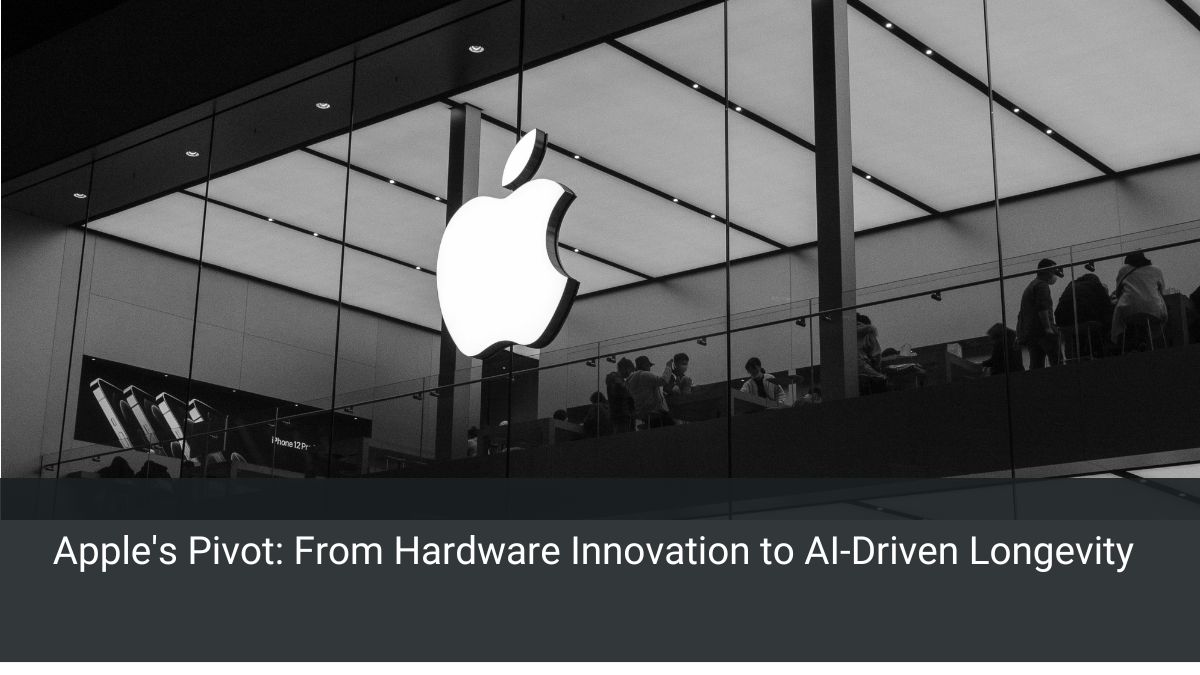AI
Apple’s Pivot: From Hardware Innovation to AI-Driven Longevity

In the ever-evolving landscape of consumer technology, Apple has long been synonymous with cutting-edge hardware design and innovation. However, recent trends suggest a shift in the company’s strategy, one that prioritizes device longevity and software enhancements over frequent hardware upgrades. This pivot not only reflects changing consumer preferences but also positions Apple at the forefront of the AI revolution.
The Slowing Pace of Hardware Innovation
Gone are the days when each new iPhone iteration brought radical design changes or groundbreaking features. The iPhone 15 Pro, while boasting a titanium shell, bears a striking resemblance to its predecessors from four years ago. Similarly, the Apple Watch and MacBook lines have seen minimal design changes in recent years.
This deceleration in hardware innovation isn’t unique to Apple. The entire tech industry is grappling with the challenge of enticing consumers to upgrade devices that, frankly, still work perfectly well. As a tech enthusiast who’s owned several generations of iPhones, I can attest to the diminishing excitement surrounding new hardware releases.
Embracing Longevity: A Double-Edged Sword
Apple’s recent focus on device durability and longevity is commendable from a consumer and environmental perspective. The company’s report highlighting the extended lifespan of its products, supported by manufacturing technologies, software updates, and repair services, is a testament to this commitment.
However, this strategy presents a conundrum for Apple’s bottom line. With devices lasting longer and performing well years after purchase, the traditional upgrade cycle is disrupted. As someone who held onto my iPhone X for four years, I’ve experienced firsthand the reduced urgency to upgrade.
The AI Revolution: Apple’s New Frontier
In the face of slowing hardware sales, Apple is betting big on artificial intelligence and software enhancements to drive growth. The upcoming Apple Intelligence features, set to debut with the iPhone 16 lineup, represent a significant shift in the company’s approach to innovation.
Apple Intelligence: More Than Just a Siri Upgrade
While details are still emerging, Apple Intelligence promises to be a comprehensive AI ecosystem that goes beyond a simple virtual assistant upgrade. From what we know, it will include:
- Enhanced natural language processing
- Proactive task management
- Contextual awareness across devices
- Integration with third-party AI services
As someone who’s often frustrated with Siri’s limitations, I’m cautiously optimistic about these developments. The potential for a truly intelligent assistant that understands context and can seamlessly manage tasks across devices is enticing.
The Vision Pro: A New Canvas for AI
Interestingly, Apple’s foray into mixed reality with the Vision Pro headset aligns perfectly with its AI ambitions. While not initially announced, sources suggest that Apple Intelligence features are in development for the Vision Pro.
Imagine donning the headset and having an AI assistant that can understand your surroundings, organize your virtual workspace, and even facilitate creative tasks in a mixed reality environment. The possibilities are truly mind-boggling.
The Business Implications
Apple’s pivot towards AI and software-driven innovation has significant implications for its business model:
- Subscription Services: We may see the introduction of premium AI features as part of subscription services, similar to iCloud+.
- App Store Revenue: As AI features become more integral to third-party apps, Apple’s App Store revenue could see a boost.
- Hardware Differentiation: While hardware changes may be less frequent, AI capabilities could become a key differentiator for newer models.
Challenges and Considerations
Despite the potential, Apple’s AI strategy faces several challenges:
1. Privacy Concerns
Apple has built its brand on privacy protection. Balancing advanced AI capabilities with its commitment to user privacy will be a delicate act.
2. Competition
Tech giants like Google and Microsoft have a head start in AI. Apple will need to convince users that its AI offerings are superior or uniquely integrated into its ecosystem.
3. User Adoption
Will consumers see enough value in AI features to justify upgrading their devices or subscribing to new services? As a long-time Apple user, I’m curious to see how compelling these features will be in daily use.
The Road Ahead
As Apple gears up for its fall events, all eyes will be on how it presents its AI strategy to the public. Will Apple Intelligence be the game-changer the company hopes for? Or will it be another incremental step in a long-term vision?
One thing is certain: Apple’s focus on software and AI marks a new chapter in its storied history. For consumers, this could mean devices that not only last longer but become more capable over time through software updates and AI enhancements.
A New Era of Innovation
Apple’s shift from hardware-centric innovation to AI-driven longevity represents a fascinating evolution in the tech industry. It challenges our perceptions of what constitutes innovation and value in consumer electronics.
As we stand on the cusp of this new era, it’s worth reflecting on how our relationship with technology might change. Will we come to value the invisible intelligence within our devices more than their outward appearance? Only time will tell.
For now, as both a tech enthusiast and a consumer, I’m excited to see how Apple’s AI ambitions unfold. The promise of devices that grow smarter and more capable over time is alluring. Yet, I can’t help but wonder: in this AI-driven future, will we still feel the same excitement for shiny new gadgets, or will our loyalty shift to the most intelligent and helpful digital companions?
